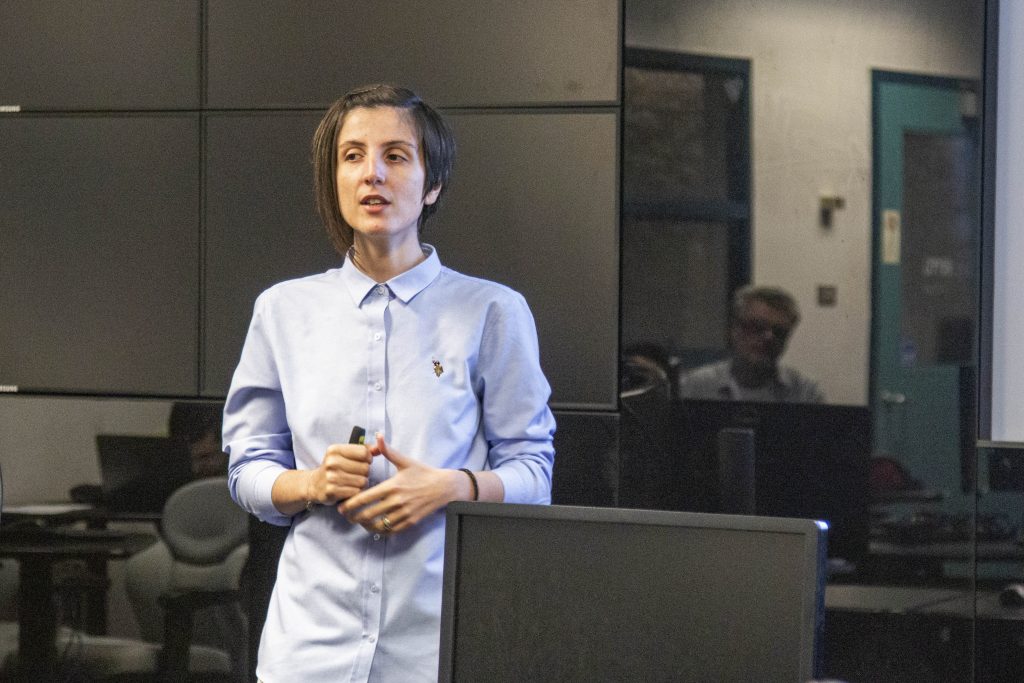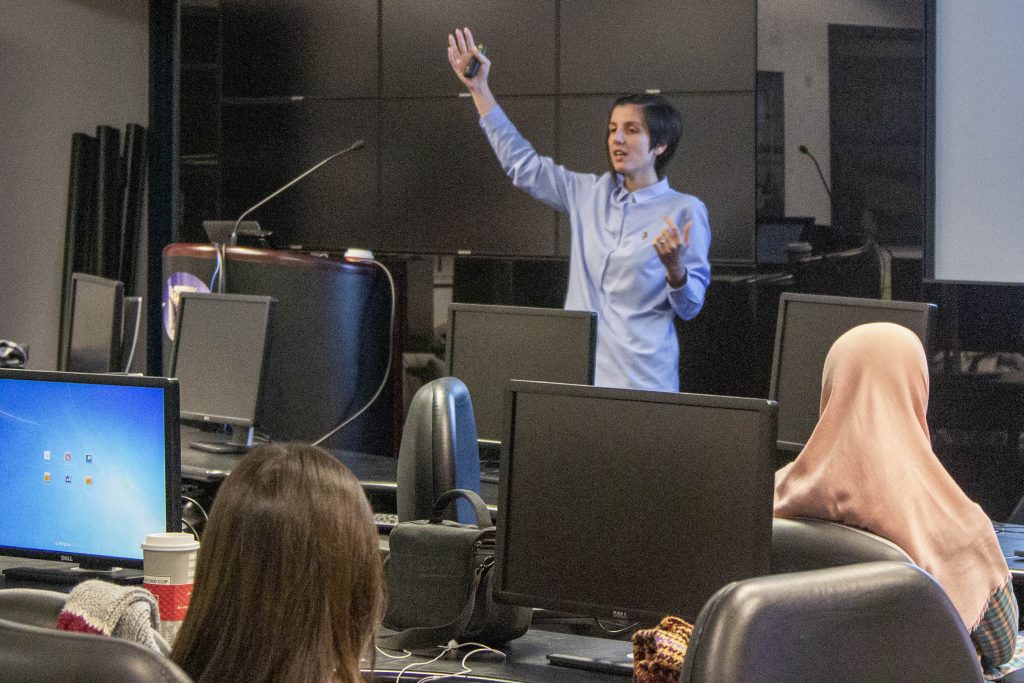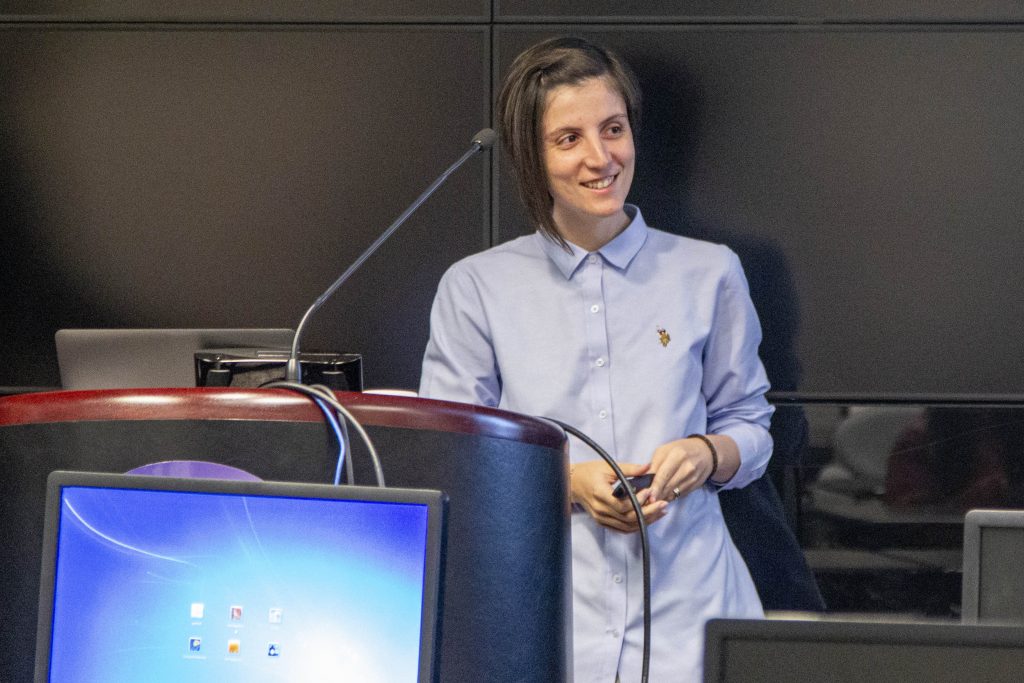
UTTRI associated faculty Professor Merve Bodur, of the Mechanical and Industrial Engineering department, gave a lecture on “Model Optimization Problems via Stochastic Programming” as a part of the UT-ITE seminar series.
Bodur’s aim was to provide a potential solution to calculate the uncertainty in modelling through stochastic programming. This last session of UT-ITE’s 2019-2020 seminar series was held on November 29 at the ITS Lab.
Uncertainty is usually found in demand forecasting such as estimation in customer arrival, predicting investment returns, wind conditions, etc. Merve suggested that stochastic programming could be used to measure these uncertain factors to produce best results. She further added that stochastic programming could help in formulating the most optimized choice in decision-making.

‘Crowdshipping’ allows package delivery without the need for processing facilities. Merve provided the application of stochastic programming through one of her own projects, which is aimed at finding the hotspots in downtown Toronto for optimized crowdshipping. This joint project was done with Professor Matthew Roorda and PhD candidate Kianoush Mousavichashmi.
The goal of the project is to build a business model that would identify parking lots in the downtown core to distribute parcels in the neighborhood. The objective is to create micro-hubs, where people would come to pick up their parcels at their convenience. The stochastic model optimization results show that the total operating cost is reduced with Merve’s proposed model.

Abstract
In this talk, we will give an introduction to modeling optimization problems where some parameters of the problem are uncertain and modeled as random variables. For instance, in power generation, energy demand is highly uncertain as well as renewal power supply at the time of the generation; in a transportation problem, travel times are uncertain at the time of planning/scheduling. We will introduce two-stage stochastic programming, and statistics that measure the value of computing a solution to the stochastic problem. We will show how to create an equivalent extensive form (deterministic) formulations of the instances, so that they may be solved with standard optimization software. We will illustrate the presented ideas on our ongoing work on the stochastic mobile facility location problem in crowdshipping.

Merve Bodur is an Assistant Professor in the Department of Mechanical and Industrial Engineering at the University of Toronto. She also holds a Dean’s Spark Professorship in the Faculty of Applied Science and Engineering. She is a faculty associate of University of Toronto Transportation Research Institute, Smart Freight Centre, and Centre for Healthcare Engineering at the University of Toronto. She obtained her Ph.D. from University of Wisconsin-Madison and did a postdoc at Georgia Institute of Technology. She received her B.S. in Industrial Engineering and B.A. in Mathematics from Bogazici University, Turkey. Her research interests include stochastic programming, integer programming, multiobjective integer programming and combinatorial optimization, with applications in a variety of areas such as scheduling, transportation, power systems, healthcare and telecommunication.
This seminar was presented by the University of Toronto Institute of Transportation Engineers (ITE) Student Chapter.
